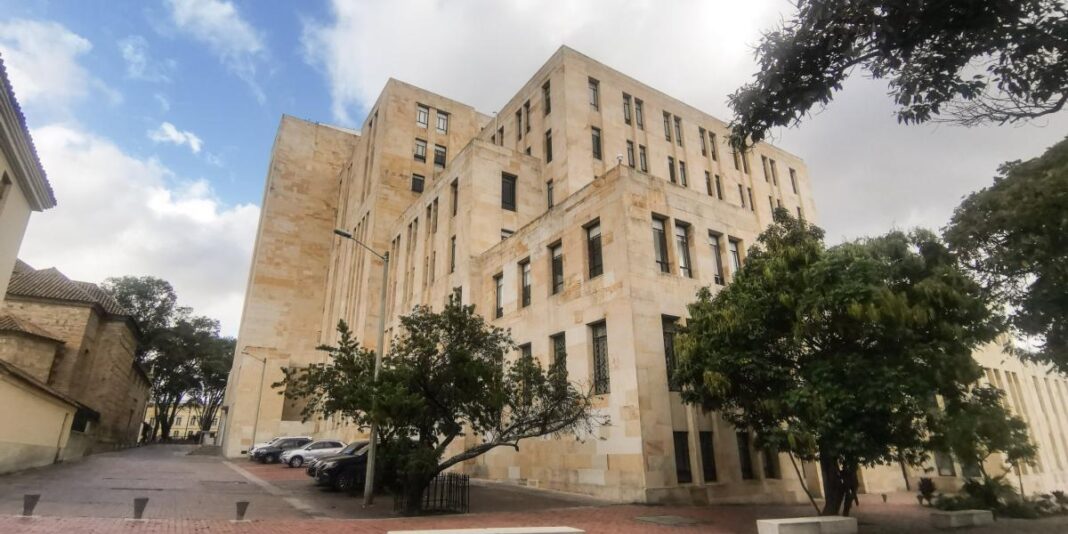BTN News: Colombia’s fiscal deficit has reached alarming levels in 2024, hitting a 20-year high according to a recent analysis by Dapper, an economic and legislative consultancy. As of June 2024, the deficit climbed to 3.3% of the nation’s Gross Domestic Product (GDP), totaling 55.7 trillion pesos. This unprecedented shortfall signals potential consequences for the Colombian economy, including the possibility of new tax reforms, cuts to social spending, or an increase in national debt. Experts warn that urgent actions will be necessary to address this growing fiscal imbalance, raising concerns about the country’s financial stability and its broader economic future.
Deficit Soars to Highest Level in Two Decades
In a historic surge, Colombia’s fiscal deficit for the first half of 2024 has escalated to 3.3% of GDP, marking the highest mid-year level in two decades. This represents a total shortfall of 55.7 trillion pesos by June. To put this figure into perspective, the deficit now surpasses the combined investment budgets for critical sectors such as Transportation, Social Inclusion, Equality, and Energy.
The 2024 fiscal deficit even exceeds the heights reached during the COVID-19 pandemic in 2020, a period characterized by extraordinary economic strain. Analysts from Dapper emphasized that these numbers signal an alarming trajectory, potentially endangering Colombia’s financial health for the foreseeable future.
Implications of a Widening Deficit: More Taxes, Debt, or Spending Cuts?
According to Dapper’s analysis, the persistent rise in the fiscal deficit could lead to significant consequences. Three possible scenarios are now on the table:
- A New Tax Reform: The Colombian government may be forced to introduce another tax reform as early as 2025. Given the upcoming pre-election period, such a move could stir political tensions, as higher taxes may impact both citizens and businesses.
- Social Spending Reductions: Another likely outcome is a reduction in social program funding and public investment. This could affect essential services and projects across sectors, putting vulnerable populations at greater risk.
- Increased Borrowing: Lastly, the country might resort to more borrowing, further inflating its national debt. Modifications to Colombia’s Fiscal Rule, which currently sets limits on deficit and debt levels, could allow for increased borrowing to fill the fiscal gap.
Budgetary Concerns: A Deeper Look at Colombia’s Financial Shortfall
The gravity of Colombia’s fiscal situation is underscored by recent data regarding the government’s financial reserves. As of August 2024, the average balance of government resources held at the Central Bank stood at just 16.2 trillion pesos—well below the 30.3 trillion average of the past four years.
Moreover, the proposed national budget for 2025 amounts to 523 trillion pesos, yet 12 trillion pesos remain unfunded. This budget shortfall, combined with the fiscal deficit, has sparked debates among experts, with some suggesting the real gap could be far greater.
Former Finance Minister José Manuel Restrepo has argued that the budget hole may be closer to 27 trillion pesos. According to Restrepo, overly ambitious tax collection targets set by the National Tax and Customs Office (DIAN) could result in further revenue shortfalls, exacerbating the fiscal crisis.
Potential Tax Reforms and Economic Adjustments
To bridge the widening budget gap, the Colombian government has already introduced a tax reform proposal to Congress. This reform includes key measures, such as:
- Higher Income Tax for Workers: The reform proposes tightening rules around income tax, potentially increasing the tax burden on workers. For example, taxpayers may no longer be able to claim more than one dependent to reduce their tax base.
- Increased Utility Costs: Households could face higher gas and electricity bills, along with rising gasoline and diesel prices, as part of an effort to increase revenue through higher taxes on essential services.
- Elimination of the Simple Regime: Small businesses that previously benefited from simplified tax structures may soon find themselves subject to the same regulations as larger enterprises. This could impose a greater financial strain on entrepreneurs and small business owners.
Modifying Fiscal Rules: More Debt, Less Oversight?
In addition to tax hikes, the government is considering amending the Fiscal Rule, a legal framework designed to cap deficit and debt levels. If adjusted, the rule could permit the government to borrow more money, further increasing the national debt as a temporary fix to the fiscal crisis.
While increased borrowing may provide immediate relief, economists warn that this approach could lead to long-term financial instability, particularly if the economy fails to grow at the pace required to manage the rising debt.
What’s Next for Colombia’s Economy?
As Colombia grapples with its highest fiscal deficit in two decades, the government’s options are limited but urgent. Whether through tax reforms, spending cuts, or increased borrowing, the path forward will undoubtedly require difficult decisions that could affect millions of citizens.
As 2025 approaches, with elections on the horizon, the government’s fiscal strategy will be closely scrutinized. For now, the outlook remains uncertain, with experts calling for a balance between immediate action and long-term fiscal responsibility.
Conclusion: Colombia’s Fiscal Future at a Crossroads
Colombia’s soaring fiscal deficit has placed the country at a critical juncture. With a budget shortfall potentially exceeding 27 trillion pesos, and the deficit hitting levels unseen in decades, the government must act quickly to stabilize the economy. Whether it’s through tax reforms, social spending cuts, or more borrowing, each choice will carry significant consequences for the nation’s economic future and the well-being of its citizens.


